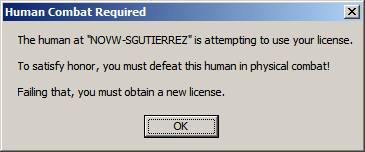Writing bios is hard, largely because succinctly describing oneself to an extent that allows others to see oneself to the same extent as one sees themselves is impossible. What follows should be a serviceable approximation.
In brief, I am a computer science student, amateur radio operator, electronics hobbyist, technical theatre person, railfan, electric power transmission appreciator, cyclist, and nerd.
Header image by Harvey S. Rice or Craig Holstine and avatar image by Robert C. Stewart. Both are from the Historical American Engineering Record project, which produces documentation singularly amazing in breadth and depth.
Posts and boosts may sometimes include strong language. I don't post or boost NSFW content (in the traditional sense—occupational safety hazards are sometimes discussed, though).
I welcome disagreement, criticism, feedback, and debate, but do not tolerate hatred or bigotry. If you engage me in good faith, I will gladly reciprocate (provided I have the time to engage at all).
| Pronouns | he/him |
| Timezone | America/Los_Angeles |
| Location | Portland, OR, USA |
